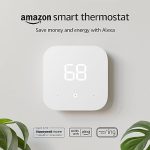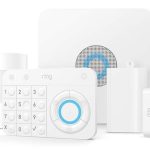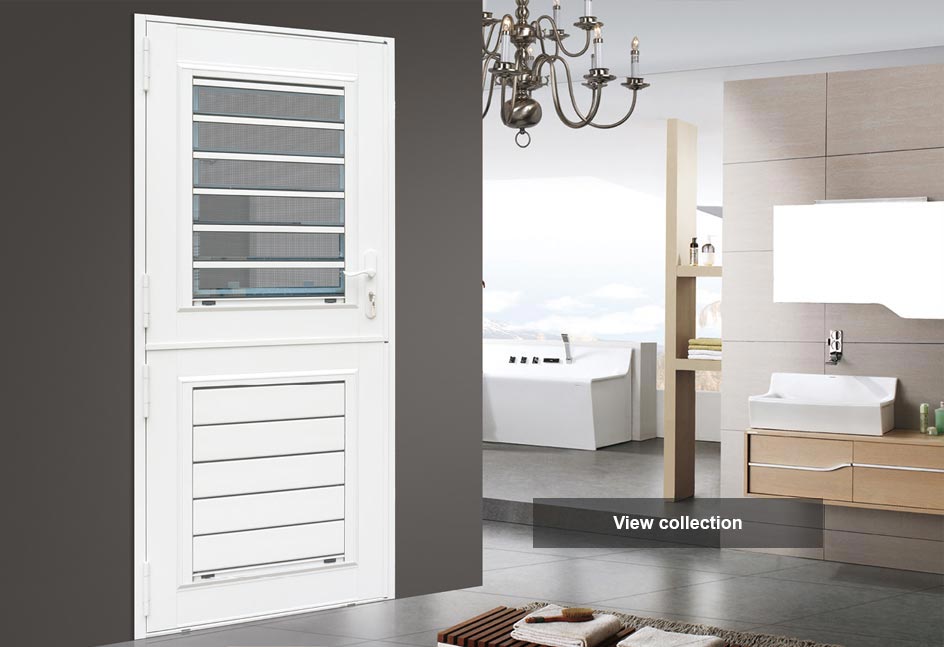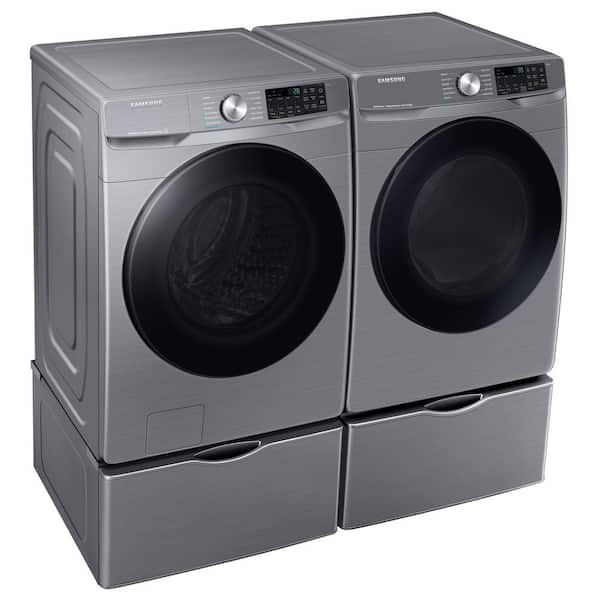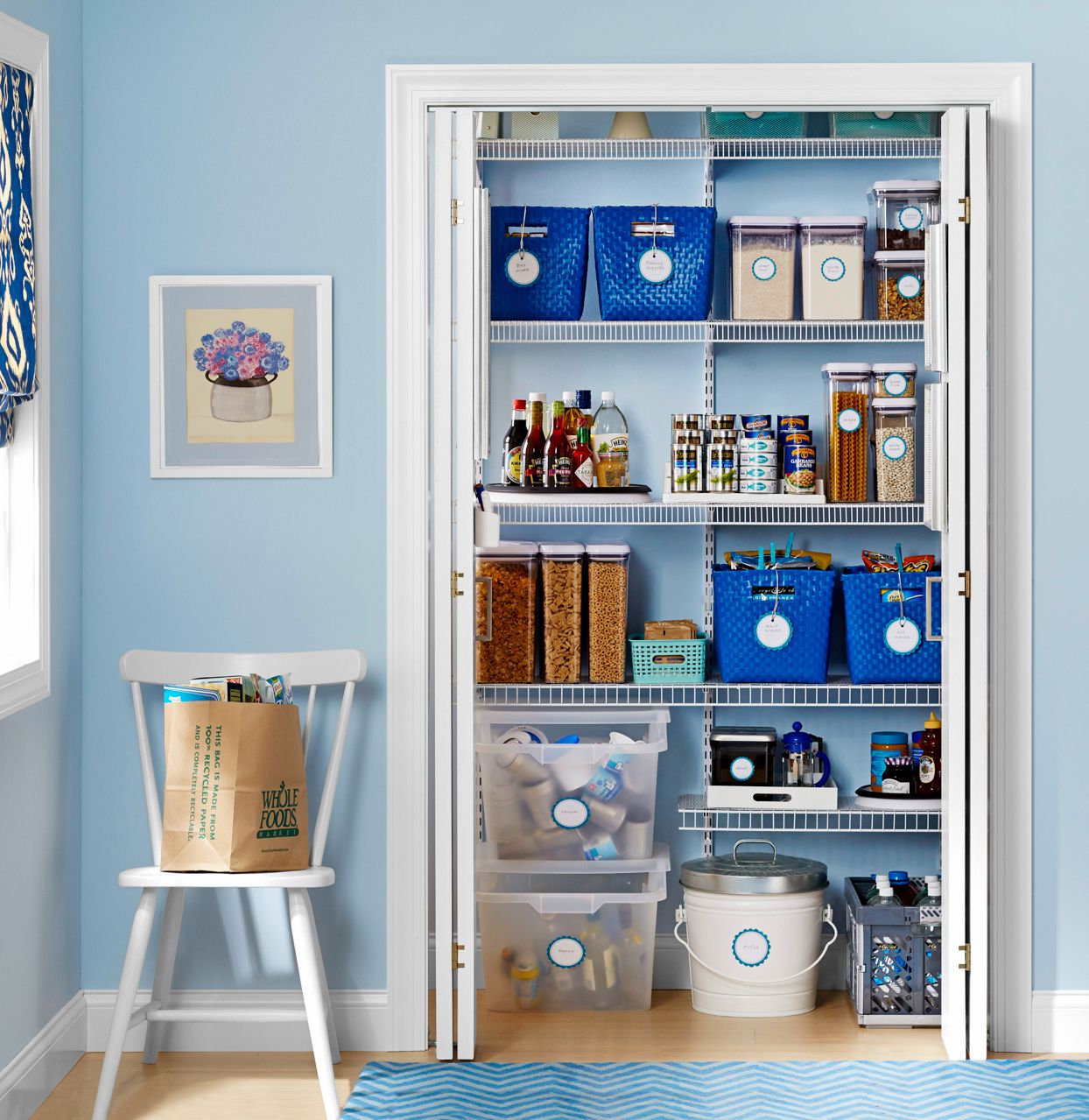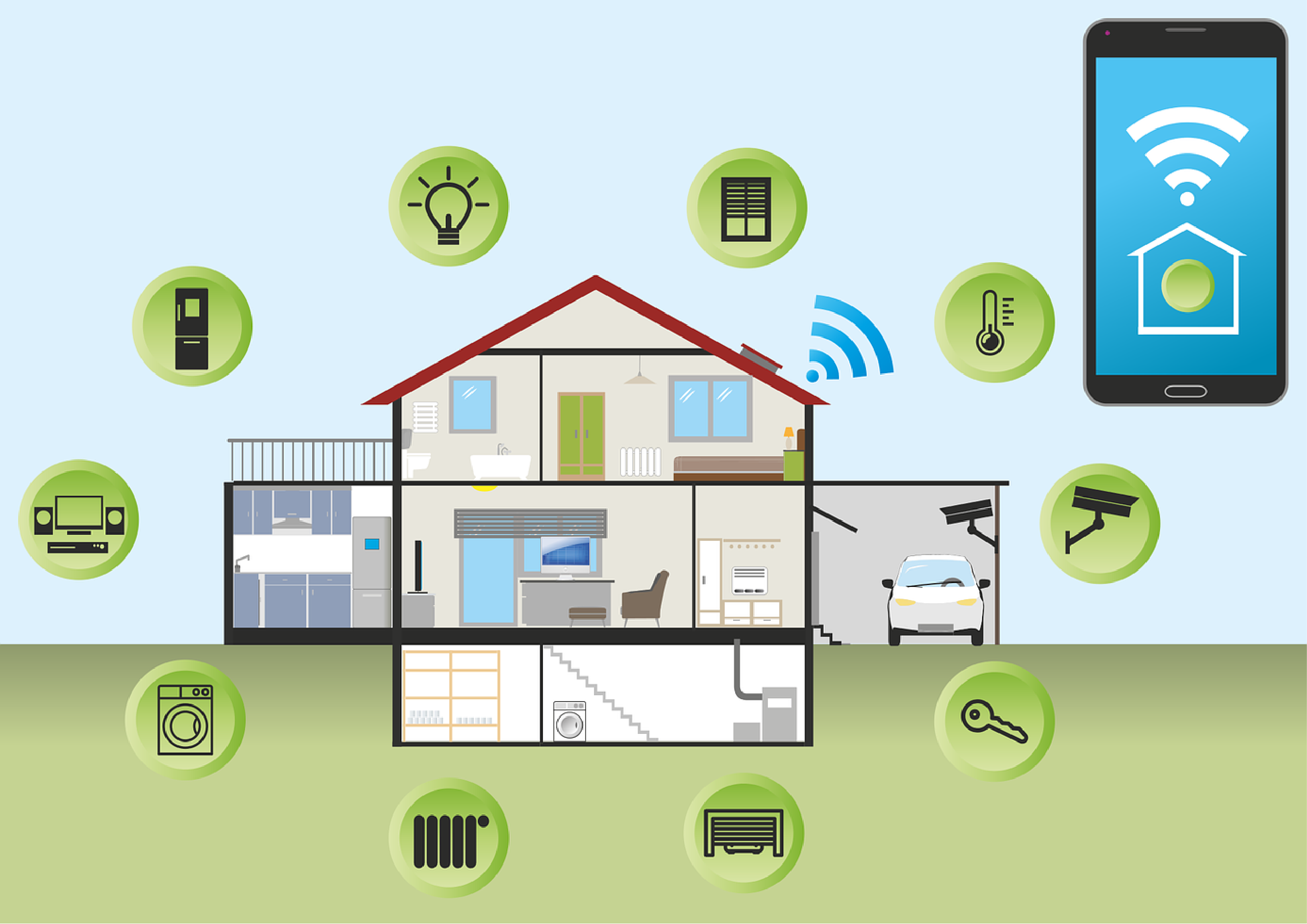
Affordable smart home automation systems offer convenience and energy savings. They integrate seamlessly with existing devices for enhanced control.
Smart home automation systems have become increasingly accessible, allowing more homeowners to experience their benefits. These systems enhance daily living by providing control over lighting, security, and climate from a single app or voice command. The affordability factor means that even budget-conscious consumers can upgrade their homes with minimal investment.
Many systems are compatible with existing devices, making the transition smooth and hassle-free. By investing in an affordable smart home automation system, you can enjoy increased convenience, security, and energy efficiency. This upgrade not only simplifies daily tasks but also adds value to your home, making it a wise choice for modern living.
Introduction To Smart Home Automation
Smart home automation is changing how we live. It makes our homes more comfortable and convenient. Imagine controlling your lights, thermostat, and security system with just your voice or smartphone. Affordable smart home automation systems are now available, making this technology accessible to many homeowners.
What Is Smart Home Automation?
Smart home automation integrates various devices and systems in your home. These devices can be controlled remotely via a smartphone or a voice assistant. Here are some common smart devices:
- Smart Lights: Control brightness and color with an app.
- Smart Thermostats: Adjust temperature settings remotely.
- Smart Locks: Lock or unlock doors using your phone.
- Smart Cameras: Monitor your home from anywhere.
Benefits Of Smart Home Systems
Smart home systems offer numerous benefits that enhance your daily life:
| Benefit | Explanation |
|---|---|
| Convenience | Control devices from anywhere with your smartphone. |
| Energy Efficiency | Optimize energy use with smart thermostats and lights. |
| Security | Monitor your home with smart cameras and locks. |
| Comfort | Create the perfect ambiance with smart lighting. |
Smart home automation systems are not just a luxury. They are practical tools that can save time, money, and energy. Embrace the smart home revolution today.
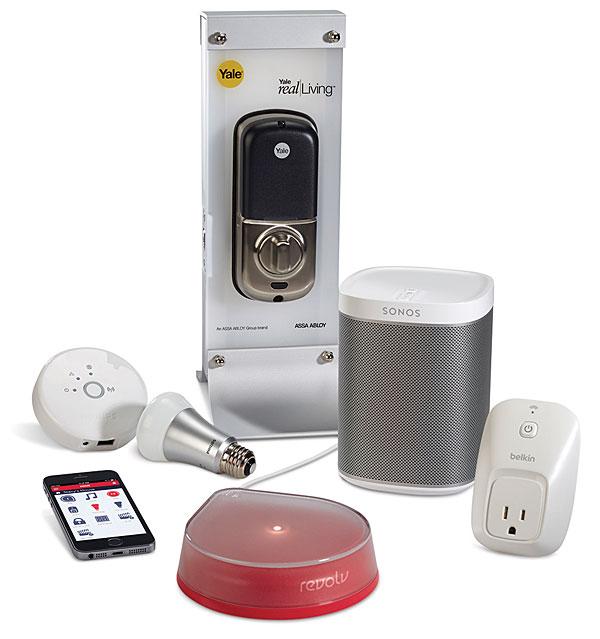
Credit: www.soundandvision.com
Key Components Of Affordable Systems
Affordable smart home automation systems include various essential components. These components work together to create a seamless and efficient smart home experience. Below, we will discuss two key components: Smart Hubs and Connected Devices.
Smart Hubs
Smart Hubs are the heart of any smart home system. They allow various devices to communicate with each other. A smart hub acts as a central control point for all your smart devices.
Popular smart hubs include:
- Amazon Echo
- Google Nest Hub
- Samsung SmartThings Hub
Amazon Echo integrates with Alexa, providing voice control. Google Nest Hub works well with Google Assistant, offering a visual interface. Samsung SmartThings Hub supports various devices and protocols, offering flexibility.
Connected Devices
Connected Devices are gadgets that connect to your smart hub. They perform specific tasks and enhance the functionality of your home.
| Device Type | Examples |
|---|---|
| Smart Lights | Philips Hue, LIFX |
| Smart Thermostats | Nest, Ecobee |
| Smart Plugs | TP-Link Kasa, Wemo |
Smart Lights like Philips Hue and LIFX allow remote control of lighting. Smart Thermostats such as Nest and Ecobee help you save energy. Smart Plugs like TP-Link Kasa and Wemo turn regular appliances into smart devices.
In summary, Smart Hubs and Connected Devices form the backbone of affordable smart home systems. Their integration creates an efficient and user-friendly smart home environment.
Setting Up A Budget-friendly Smart Home
Setting up a smart home can be simple and cost-effective. You can enjoy modern conveniences without breaking the bank. This guide will show you how to create a smart home on a budget.
Initial Planning
Start with a plan. Decide which rooms you want to automate. List the devices you need. Setting a budget is important too.
- Decide on the rooms to automate.
- List essential smart devices.
- Set a clear budget.
Cost-effective Devices
Choose affordable devices that offer great features. Look for sales and discounts. These devices will give you the best bang for your buck.
| Device | Average Cost | Features |
|---|---|---|
| Smart Light Bulbs | $15 | Energy-efficient, Remote control, Various colors |
| Smart Plugs | $10 | Voice control, Schedule timers, Energy monitoring |
| Smart Thermostats | $100 | Energy-saving, Remote access, Easy to install |
Using these devices will make your home smarter without costing much. You can find affordable options that offer great value.
Smart Lighting Solutions
Smart lighting solutions bring convenience and energy savings to your home. These systems offer a variety of features that make your daily life easier and more efficient. From energy-efficient bulbs to remote control options, smart lighting can transform your living space.
Energy-efficient Bulbs
Energy-efficient bulbs are a key feature of smart lighting solutions. They consume less electricity and have a longer lifespan. This means you save money on your electricity bills and replacement costs.
- LED bulbs use up to 80% less energy.
- Smart bulbs can last up to 15,000 hours.
- They produce less heat, making them safer.
Energy-efficient bulbs also come in various colors and brightness levels. You can easily adjust them to suit your mood or activity. Use a soft, warm light for relaxing evenings or bright, cool light for reading and work.
Remote Control Options
Remote control options for smart lighting allow you to manage lights from anywhere. Use a smartphone app, voice command, or a smart hub to control your lights. This adds flexibility and convenience to your daily routine.
- Turn lights on or off remotely.
- Set schedules for automatic lighting.
- Adjust brightness levels without getting up.
Remote control options also enhance home security. You can turn lights on when you are away, giving the appearance that someone is home. This can deter potential intruders and keep your home safe.
| Feature | Benefit |
|---|---|
| Energy-Efficient Bulbs | Lower energy bills and longer lifespan. |
| Remote Control Options | Convenient and flexible light management. |
Affordable Smart Security Systems
Installing smart security systems at home doesn’t have to be expensive. You can protect your home without breaking the bank. Affordable options are available for every budget.
Diy Security Kits
DIY security kits are great for beginners. They are easy to install and use. Many kits come with cameras, sensors, and alarms. Here are some benefits:
- Cost-effective: No need for professional installation.
- Customizable: Add more devices as needed.
- Easy setup: Follow simple instructions.
A popular DIY kit might include:
| Item | Description | Average Cost |
|---|---|---|
| Camera | Monitors entry points | $50 |
| Motion Sensor | Detects movement | $30 |
| Alarm | Alerts you of intrusions | $20 |
Smart Locks
Smart locks offer extra security for your doors. They can be controlled remotely. No more worrying about lost keys. Here are some features:
- Remote access: Unlock doors from anywhere.
- Keyless entry: Use codes or your phone.
- Activity logs: See who enters and exits.
Some popular smart lock brands include:
- August Smart Lock
- Schlage Encode
- Yale Assure Lock
Smart locks usually cost between $100 and $300. They add convenience and security to your home.
Voice Assistants And Control
Voice assistants make smart home automation easy. They allow you to control devices with just your voice. This makes daily tasks faster and more fun.
Popular Voice Assistants
Many voice assistants are available for smart homes. Here are a few popular ones:
- Amazon Alexa: Works with many smart devices.
- Google Assistant: Great for Google services and devices.
- Apple Siri: Best for Apple ecosystem users.
Integration Tips
Integrating voice assistants into your smart home is easy. Follow these tips:
- Choose a voice assistant that works with your devices.
- Set up the voice assistant on your smartphone.
- Connect the voice assistant to your smart devices.
- Use simple voice commands to control your devices.
| Voice Assistant | Best For |
|---|---|
| Amazon Alexa | Wide compatibility |
| Google Assistant | Google services |
| Apple Siri | Apple devices |
Smart Thermostats For Energy Savings
Smart thermostats help save energy and reduce utility bills. They adjust the temperature automatically based on your habits. This makes your home more comfortable and efficient.
Top Budget-friendly Thermostats
There are many affordable smart thermostats available. Here are some top choices:
| Thermostat | Price | Features |
|---|---|---|
| Google Nest Thermostat | $129 | Voice control, Energy-saving features |
| ecobee3 lite | $169 | Smart sensor support, Home/Away mode |
| Honeywell T5+ | $149 | Geo-fencing, 7-day scheduling |
Installation Tips
Installing a smart thermostat can be simple. Follow these tips to ensure a smooth setup:
- Turn off the power: Ensure the HVAC system is off.
- Label wires: Mark each wire before disconnecting.
- Use the app: Most thermostats have a setup app. Follow the instructions.
With these tips, you can enjoy the benefits of a smart thermostat. Save energy and keep your home comfortable.
:max_bytes(150000):strip_icc()/smart-home.asp-final-5de0da3d6d8a474f9028d26c957255fe.png)
Credit: www.investopedia.com
Home Entertainment Automation
Transforming your living room with affordable smart home automation systems is now easier than ever. Home entertainment automation can make your movie nights more exciting and your music sessions more enjoyable. Let’s explore how you can upgrade your home entertainment with smart technology without breaking the bank.
Smart Tvs
Smart TVs are the cornerstone of a modern entertainment setup. They offer streaming services, internet browsing, and app integration. You can control these TVs with your voice or a smartphone app.
- Voice Control: Use your voice to change channels or search for shows.
- Streaming Services: Access Netflix, Hulu, and other platforms with ease.
- App Integration: Sync your TV with smart home devices for a seamless experience.
Affordable options are available from brands like TCL and Vizio. These brands offer high-quality smart TVs at budget-friendly prices.
Affordable Audio Systems
Enhance your audio experience with affordable smart audio systems. These systems provide high-quality sound and easy integration with other smart devices.
Soundbars: Upgrade your TV’s audio with an affordable soundbar. Brands like Sonos and Vizio offer budget options.
Smart Speakers: Use smart speakers for streaming music and voice control. Popular choices include Amazon Echo and Google Nest.
| Product | Features | Price Range |
|---|---|---|
| Sonos Beam | Voice Control, High-Quality Sound | $200 – $400 |
| Vizio Soundbar | Bluetooth, Affordable | $100 – $200 |
| Amazon Echo | Voice Control, Smart Home Integration | $50 – $100 |
| Google Nest Audio | Voice Control, High-Quality Sound | $100 – $150 |
These affordable audio systems can significantly improve your home entertainment experience. They are easy to set up and integrate seamlessly with other smart home devices.
Kitchen Automation On A Budget
Transforming your kitchen with smart technology doesn’t need to be expensive. Affordable smart home automation systems can enhance your cooking experience. From smart appliances to cooking assistants, the options are plenty and budget-friendly.
Smart Appliances
Smart appliances bring convenience to your kitchen. They help you save time and energy. Here are some affordable smart appliances to consider:
- Smart Fridge: Keeps food fresh longer. Alerts you if the door is open.
- Smart Oven: Preheats to the perfect temperature. Controlled via an app.
- Smart Coffee Maker: Brews your coffee on schedule. Controlled with your voice.
Cooking Assistants
Cooking assistants can make meal prep easier and more fun. These devices help you with recipes and cooking tips. Here are some affordable cooking assistants:
- Smart Scale: Measures ingredients accurately. Connects to your smartphone.
- Smart Thermometer: Monitors food temperature. Alerts you when food is ready.
- Voice-Activated Assistant: Provides cooking tips. Reads recipes step-by-step.
Creating a smart kitchen on a budget is possible. Start with these affordable smart appliances and cooking assistants to transform your cooking experience.
Smart Home Automation For Pets
Many pet owners worry about their furry friends when away. Affordable smart home automation systems can help. These systems ensure pets are fed and monitored. Below, we explore two key features of smart home automation for pets.
Smart Feeders
Smart feeders are a lifesaver for busy pet owners. They allow you to schedule and control your pet’s meals. You can set meal times and portion sizes using a smartphone app.
Here are some benefits of smart feeders:
- Scheduled Feeding: Ensure your pet never misses a meal.
- Portion Control: Helps in managing your pet’s weight.
- Remote Access: Feed your pet from anywhere.
Many smart feeders also come with additional features. Some have built-in cameras, allowing you to watch your pet eat. Others can send alerts to your phone when food is running low.
Pet Monitoring Systems
Pet monitoring systems provide peace of mind. These systems allow you to keep an eye on your pets from your smartphone.
Here are some features of pet monitoring systems:
- Live Video Streaming: Watch your pet in real-time.
- Two-Way Audio: Talk to your pet through the device.
- Motion Detection: Get alerts if your pet moves around.
Some advanced pet monitoring systems offer additional functionalities. They can track your pet’s activity levels and even offer night vision for 24/7 monitoring.
Using these smart devices, you can ensure your pet is safe and happy. Affordable smart home automation systems for pets are a great investment.
Energy Management Systems
Energy Management Systems are essential for a smart home. They help in monitoring and controlling energy usage. This leads to cost savings and a greener environment. Let’s explore how smart plugs and energy usage monitoring can help.
Smart Plugs
Smart plugs are tiny devices you can plug into your wall sockets. These plugs allow you to control your appliances remotely. You can turn devices on or off using your smartphone. This helps in saving energy.
- Control your devices from anywhere.
- Schedule when devices turn on or off.
- Monitor the energy use of each device.
Imagine turning off your coffee maker from your bed. Smart plugs make this possible. They are easy to install and use.
Energy Usage Monitoring
Energy usage monitoring helps track how much energy your home uses. This system provides detailed reports. You can see which devices consume the most power.
| Device | Energy Used (kWh) | Cost ($) |
|---|---|---|
| Refrigerator | 30 | 3.00 |
| Air Conditioner | 50 | 5.00 |
You can make informed decisions about energy use. You might decide to unplug certain devices when not in use. This can help save money and reduce your carbon footprint.
Energy Management Systems are a great addition to any smart home. They offer both smart plugs and energy usage monitoring. These tools help you manage energy better and save money.

Credit: m.youtube.com
Automating Home Maintenance
Imagine a home that takes care of itself. Affordable smart home automation systems make this dream a reality. These systems help you with everyday tasks. They save you time and effort. Let’s explore some exciting options for automating home maintenance.
Smart Lawn Care
Keeping your lawn green and healthy takes time. Smart lawn care devices can help. They water the grass only when needed. This saves water and keeps your lawn lush.
Here are some popular smart lawn care devices:
- Smart Sprinklers: Control your sprinklers with your phone.
- Robotic Lawn Mowers: These robots mow the lawn for you.
- Soil Sensors: These sensors check the soil moisture levels.
Automated Cleaning Devices
Cleaning the house can be a chore. Automated cleaning devices make it easier. They handle dust, dirt, and even pet hair.
Check out these amazing cleaning gadgets:
- Robotic Vacuum Cleaners: These vacuums clean the floors automatically.
- Robot Mops: These mops can scrub and clean your floors.
- Window Cleaning Robots: These robots keep your windows spotless.
With these devices, your home stays clean with little effort. They are easy to use and efficient. You can control most of them with your smartphone. They also work on schedules that you set. This makes home maintenance simple and stress-free.
Creating A Smart Home Network
Building a smart home network is essential for an effective home automation system. A strong and secure network ensures all devices function seamlessly. Let’s explore how to set up and secure your smart home network.
Setting Up Wi-fi
Setting up a robust Wi-Fi network is the first step. Follow these simple steps to get started:
- Choose a reliable Wi-Fi router. Ensure it supports multiple devices.
- Position the router centrally. This helps in even signal distribution.
- Connect your modem to the router. Use an Ethernet cable for this.
- Power on the router and modem. Wait for the lights to stabilize.
- Set up the Wi-Fi network. Use a unique SSID and a strong password.
A good Wi-Fi setup ensures all smart devices stay connected.
Network Security
Network security is crucial for protecting your smart home. Follow these guidelines to secure your network:
- Change default passwords: Never use the default router password.
- Enable WPA3 encryption: This is the latest and most secure standard.
- Disable WPS: Wi-Fi Protected Setup is prone to attacks.
- Use a guest network: Keep your main network private.
- Regular firmware updates: Keep your router’s firmware up-to-date.
Securing your network protects your devices from unauthorized access.
| Step | Description |
|---|---|
| 1 | Choose a reliable Wi-Fi router |
| 2 | Position the router centrally |
| 3 | Connect modem to router |
| 4 | Power on and stabilize |
| 5 | Set up Wi-Fi network |
Creating a smart home network is simple and essential. Follow these steps and secure your smart home today!
Affordable Smart Home Solutions For Renters
Living in a rented space shouldn’t prevent you from enjoying smart home technology. Affordable smart home solutions make it easy for renters to upgrade their living spaces without breaking the bank or violating lease agreements.
Portable Devices
Portable devices are perfect for renters. These devices can easily be moved from place to place. Some popular options include smart speakers, smart plugs, and smart lights.
- Smart Speakers: Devices like Amazon Echo and Google Home can play music, control other smart devices, and answer questions.
- Smart Plugs: Turn any standard appliance into a smart device. Simply plug it into a smart plug.
- Smart Lights: Bulbs like Philips Hue can change colors and be controlled remotely.
These devices require no permanent installation. This makes them ideal for renters.
Non-invasive Installations
Non-invasive installations ensure you won’t damage walls or fixtures. Some great options include peel-and-stick sensors, battery-powered cameras, and magnetic mounts.
- Peel-and-Stick Sensors: Use adhesive to attach sensors to doors and windows. These can alert you to any movement.
- Battery-Powered Cameras: No wiring needed. These cameras can be placed anywhere for extra security.
- Magnetic Mounts: Easily attach smart devices to metal surfaces. No screws or nails required.
These installations are easy to remove. They leave no marks, ensuring you get your deposit back.
Smart Home Automation For Seniors
Smart home automation systems offer seniors a safer and more comfortable life. These systems integrate technology to help seniors live independently. With the right setup, seniors can enjoy peace of mind and convenience.
Health Monitoring Devices
Health monitoring devices are crucial for seniors. These devices track vital signs and alert caregivers if needed. They monitor heart rate, blood pressure, and glucose levels. Some systems even detect falls and other emergencies.
The data collected helps doctors make better decisions. Family members can also stay informed about their loved one’s health. This ensures timely interventions and better care.
| Device | Function |
|---|---|
| Wearable Monitors | Track heart rate and activity levels |
| Blood Pressure Cuffs | Monitor blood pressure levels |
| Glucose Meters | Check blood sugar levels |
Ease Of Use Features
Smart home devices designed for seniors are easy to use. Voice commands simplify tasks. Seniors can control lights, thermostats, and more by speaking.
- Voice Assistants: Control home devices with simple commands.
- Automated Lights: Lights turn on and off with movement.
- Smart Thermostats: Adjust temperature with ease.
These features reduce the need for physical effort. They also enhance safety by preventing accidents.
Integrating Smart Home With Iot
Integrating smart home devices with the Internet of Things (IoT) creates a seamless experience. Homeowners can control various gadgets from a single interface. This system offers convenience and efficiency.
Connecting Multiple Devices
Connecting multiple smart devices can be simple with the right tools. A smart home hub can link lights, thermostats, and security cameras. This hub acts as a central point for all devices.
- Smart Lighting: Control your lights remotely.
- Smart Thermostats: Adjust your home’s temperature from anywhere.
- Smart Security: Monitor your home with cameras and sensors.
These devices communicate through Wi-Fi, Bluetooth, or Zigbee. They can work together to create a harmonious environment.
Interoperability Challenges
Ensuring different devices work together can be challenging. Devices from different brands may not communicate well. This is known as interoperability issues.
Some common challenges include:
- Compatibility: Not all devices use the same communication protocols.
- Updates: Firmware updates can disrupt device communication.
- Security: Ensuring all devices are secure can be complex.
Despite these challenges, many solutions exist. Universal platforms like Google Home or Amazon Alexa can help. These platforms support a wide range of devices, making integration easier.
In summary, integrating a smart home with IoT offers many benefits. It requires understanding how devices connect and the challenges they face. With the right knowledge, you can create a seamless and efficient smart home.
Diy Smart Home Projects
Transforming your home into a smart home can be affordable. DIY smart home projects empower you to automate your living space efficiently. These projects save money and give you control over the technology in your home.
Step-by-step Guides
Step-by-step guides simplify the process of setting up your smart home devices. Follow these easy instructions to get started:
- Choose a smart home hub like Amazon Echo or Google Home.
- Connect your hub to your Wi-Fi network.
- Download the hub’s app on your smartphone.
- Add compatible devices like smart bulbs or smart plugs.
- Configure each device in the app.
- Test the devices to ensure they work properly.
Essential Tools
Having the right tools makes your DIY projects easier. Here are the essential tools you need:
- Screwdrivers (Philips and Flathead)
- Wire cutters and strippers
- Voltage tester
- Smartphone or tablet
- Wi-Fi router
- Smart home hub
- Smart light bulbs
- Smart plugs
These tools help you set up and maintain your smart home devices. Always ensure your Wi-Fi network is strong and secure.
| Tool | Use |
|---|---|
| Screwdrivers | Install and secure devices |
| Wire cutters | Trim and strip wires |
| Voltage tester | Check electrical connections |
| Smartphone | Control devices via apps |
| Wi-Fi router | Connect smart devices |
| Smart home hub | Central control for devices |
| Smart bulbs | Automate lighting |
| Smart plugs | Automate appliances |
By following these guides and using these tools, you can create a smart home that is both efficient and cost-effective.
Future Trends In Smart Home Automation
Smart home automation is growing rapidly. New technologies are making homes smarter and more efficient. Let’s explore the future trends in this exciting field.
Emerging Technologies
Several emerging technologies are shaping smart homes. These innovations are transforming daily life.
| Technology | Description |
|---|---|
| Artificial Intelligence (AI) | AI helps devices learn and adapt to user habits. |
| Internet of Things (IoT) | IoT connects devices, allowing them to communicate. |
| Voice Assistants | Voice control makes managing devices easier and faster. |
Market Predictions
Experts predict significant growth in the smart home market. Here are some key forecasts:
- Increased Adoption: More households will adopt smart devices.
- Lower Costs: Prices for smart home technology will decrease.
- Energy Efficiency: Smart homes will be more energy-efficient.
These trends show a bright future for smart home automation. Technologies will continue to evolve, making homes smarter and lives easier.
Smart Home Automation On A Budget
Transforming your home into a smart home doesn’t have to cost a fortune. With the right strategies, you can enjoy the benefits of home automation without breaking the bank. Discover effective tips and common pitfalls to avoid as you embark on your affordable smart home journey.
Top Tips And Tricks
- Start Small: Begin with affordable devices like smart plugs and light bulbs.
- DIY Solutions: Utilize DIY kits for smart home projects.
- Look for Sales: Purchase devices during sales events or promotions.
- Use Free Apps: Many smart devices work with free mobile apps.
- Compatibility: Ensure new devices are compatible with existing ones.
Common Mistakes To Avoid
- Over-Spending: Don’t buy all devices at once. Prioritize needs first.
- Ignoring Compatibility: Check if new devices work with your current system.
- Not Updating Firmware: Keep all devices updated for optimal performance.
- Skipping Security: Always secure your devices with strong passwords.
- Neglecting Research: Read reviews and compare products before buying.
| Device | Average Cost | Usage |
|---|---|---|
| Smart Plug | $20 | Control appliances remotely |
| Smart Bulb | $15 | Adjust lighting via app |
| DIY Security Kit | $150 | Home security and monitoring |
Case Studies Of Affordable Smart Homes
Smart home technology has become more accessible and affordable. Many families now enjoy the benefits of home automation. Here, we showcase real-life examples and lessons learned from affordable smart homes.
Real-life Examples
Here are some real-life examples of families who have successfully implemented affordable smart home solutions:
- The Smith Family: They used smart plugs and bulbs. They saved money on energy bills.
- The Johnson Family: They installed a budget-friendly smart thermostat. It helped them maintain a comfortable home temperature.
- The Lee Family: They integrated smart security cameras. This provided them peace of mind without breaking the bank.
Lessons Learned
From these case studies, several lessons stand out:
- Start with basic devices like smart plugs and bulbs. They are easy to use.
- Invest in a smart thermostat for energy savings. It pays off quickly.
- Use smart security solutions for enhanced safety. They are cost-effective.
These examples and lessons show that affordable smart home technology is within reach for many families. With careful planning and selection, anyone can enjoy the benefits of a smart home.
| Family | Smart Devices Used | Benefits |
|---|---|---|
| The Smith Family | Smart Plugs, Smart Bulbs | Energy Savings |
| The Johnson Family | Smart Thermostat | Comfort, Cost Savings |
| The Lee Family | Smart Security Cameras | Peace of Mind, Security |
Frequently Asked Questions
What Is A Smart Home Automation System?
A smart home automation system allows you to control home devices remotely via a smartphone or voice commands.
How Does Home Automation Work?
Home automation works by connecting devices to a central hub or app, allowing for remote control and automation.
Are Smart Home Systems Expensive?
Smart home systems can be affordable, with entry-level options available for various budgets.
Can I Install Smart Home Devices Myself?
Yes, many smart home devices are designed for easy DIY installation without professional help.
Which Smart Home Hub Is Best?
The best smart home hub depends on your needs. Popular options include Amazon Echo, Google Nest Hub, and Samsung SmartThings.
Do Smart Home Systems Save Energy?
Yes, smart home systems can save energy by optimizing heating, cooling, and lighting based on your usage patterns.
Are Smart Home Devices Secure?
Most smart home devices offer strong security features, but it’s important to keep software updated and use strong passwords.
What Devices Can Be Automated?
Common devices include lights, thermostats, cameras, locks, and appliances. Most electronic devices can be automated.
Is Smart Home Automation Worth It?
Smart home automation offers convenience, energy savings, and enhanced security, making it a worthwhile investment for many.
Can Smart Home Systems Be Expanded?
Yes, you can start small and add more devices over time as your needs and budget allow.
Conclusion
Affordable smart home automation is accessible to everyone. It enhances convenience, safety, and energy efficiency. Investing in smart devices can improve your lifestyle significantly. With many budget-friendly options available, you can start small and expand over time. Embrace the future of home automation without breaking the bank.
Make your home smarter today!

